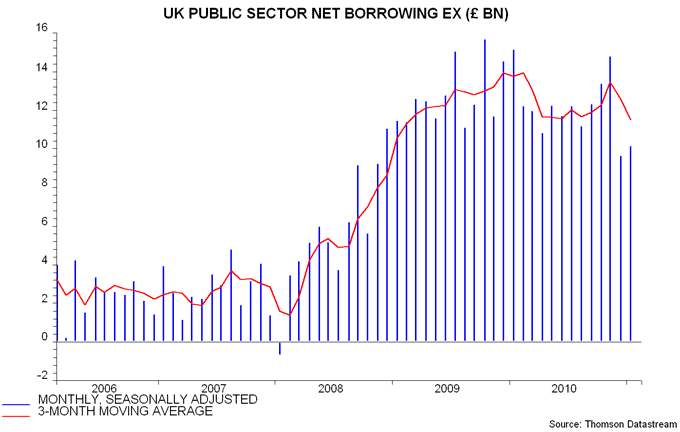A post last August suggested that public sector net borrowing excluding the temporary effects of financial interventions (i.e. PSNBex) would undershoot the Office for Budget Reponsibility's £149 billion projection for 2010-11 by a significant margin, calling into question the necessity of the VAT rise to 20%. This forecast is back on track following favourable January numbers, released today.
PSNBex fell to -£3.7 billion (i.e. a surplus) in January versus £1.3 billion a year earlier. Borrowing in the prior nine months of 2010-11, moreover, was revised down by £1.6 billion.
If seasonally-adjusted borrowing (see chart) is stable at its January level in February and March, the full-year deficit will be £139 billion versus £156 billion in 2009-10.
The large year-on-year improvement was driven by a £6.4 billion rise in central government current receipts, mainly reflecting higher income and corporation taxes, with increased VAT contributing only £700 million. Current receipts are up 8.4% year-to-date versus the OBR's full-year forecast of 7.1%, suggesting that underlying economic growth is running ahead of its expectations.
In the June Budget, the VAT rise to 20% was projected to raise £2.8 billion in 2010-11 and £12.1 billion in 2011-12. Excluding its impact, PSNBex is on course for a £7 billion undershoot of the OBR's June projection in 2010-11. Assuming that this carries over to 2011-12, the June borrowing path could have been achieved by calibrating the VAT change to raise about £5 billion rather than £12.1 billion, suggesting a rise to 18.5% rather than 20%.
